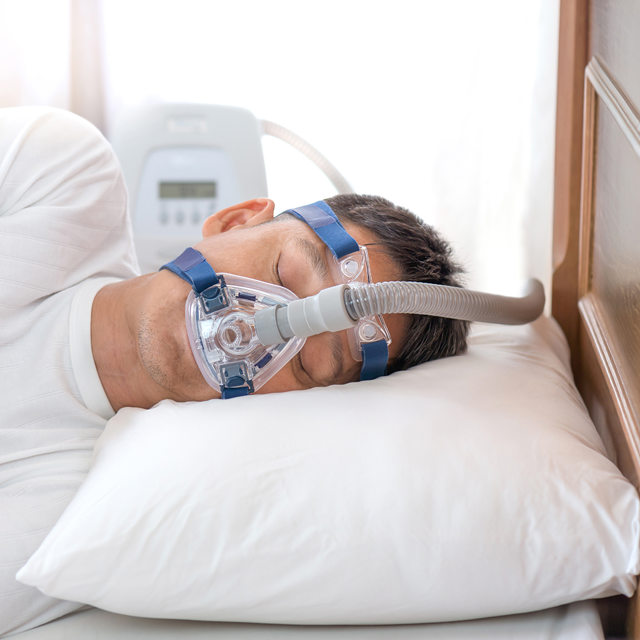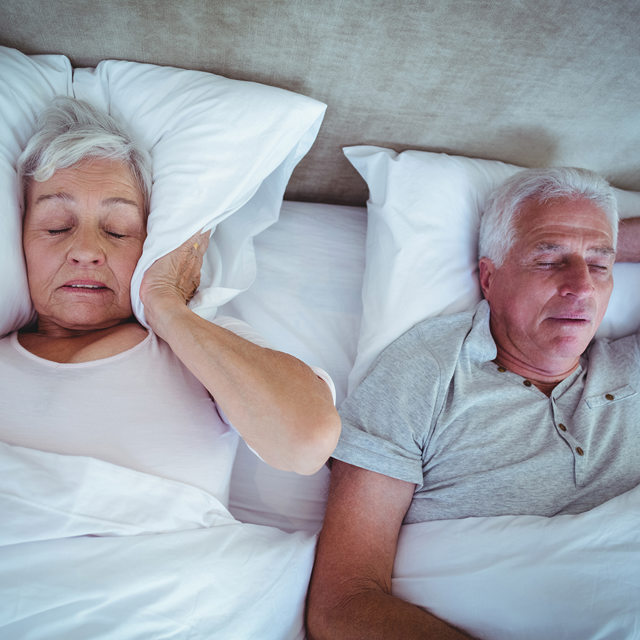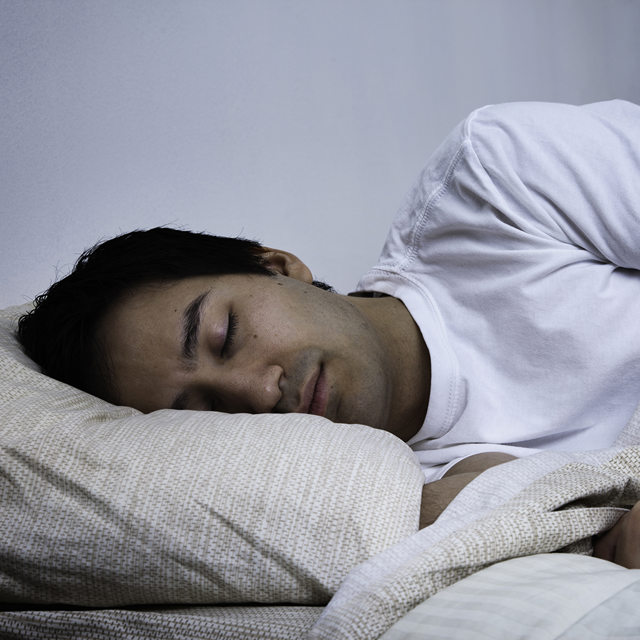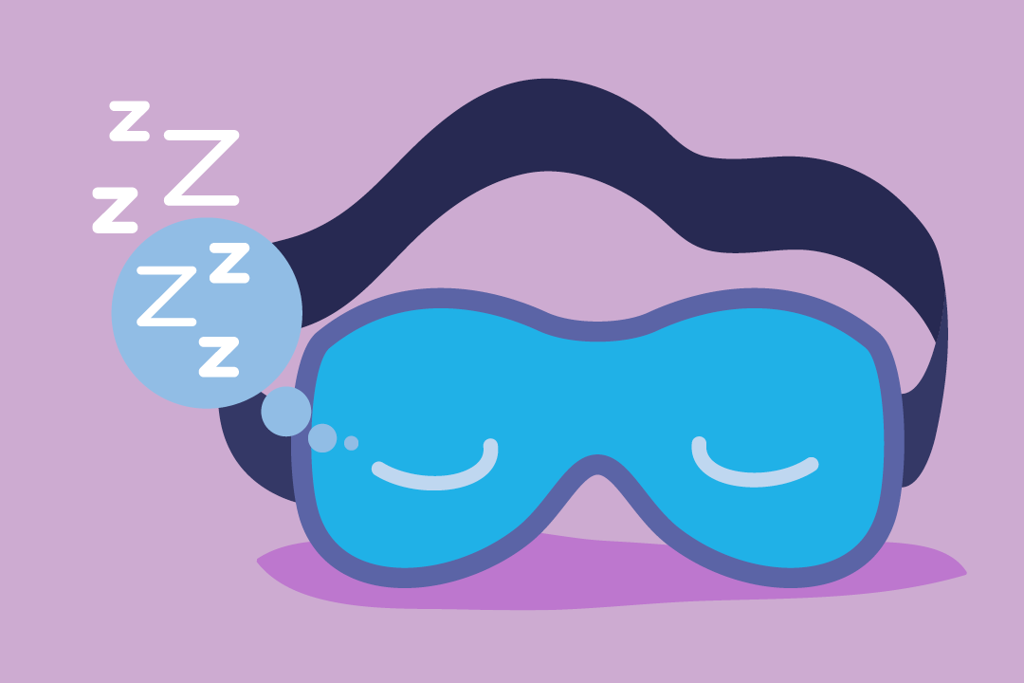
Do you have a sleep disorder?
Sleep Center at Penn Highlands
Sleep isn’t a luxury. It’s necessary to your physical and mental well-being. Sleep disorders put you at increased risk for obesity, heart disease, kidney disease, depression and diabetes. Lack of good quality sleep also can lead to serious injuries, irritability, reduced work performance, increased healthcare costs and a lower quality of life.
Adults need an average of seven to eight hours of sleep each night, but many Americans aren’t getting it. An estimated 70 million U.S. adults have a sleep disorder keeping them from getting the rest they need.
If you make time to get the recommended amount of sleep and still don’t feel rested, you might have a sleep disorder.
Complete our online Sleep Survey to receive a FREE sleep mask.
What Are the Signs of a Sleep Disorder?
Feeling tired during the day is the first sign of a sleep disorder, but it isn’t the only one. Other sleep disorder symptoms include regularly:
- Taking more than 30 minutes to fall asleep
- Waking multiple times a night
- Waking too early in the morning
- Snoring
- Feeling the need to move your arms and legs frequently while trying to fall asleep
Do You Have a Sleep Disorder? Take our Free Sleep Quiz to Find Out!
Are you tired throughout the day? Are you told that you snore loudly? You may have sleep apnea. Learn more by taking our free sleep quiz and get a free sleep mask.
How Are Sleep Disorders Diagnosed?
If you think you might have a sleep disorder, start by making an appointment with your primary care provider. He or she may be able to diagnose and treat your sleep problems. Sometimes sleep disorders are symptoms of other chronic health problems. If you have trouble sleeping, talk to your primary care provider about your risk for heart disease, diabetes, nerve problems, depression and anxiety.
Chronic pain can also keep you up at night. Ask your doctor about non-opioid pain management options.
Your primary care provider will ask you questions about your sleep patterns, symptoms, and medical history. If he or she is unable to diagnose or treat your sleep disorder, you may be referred to a sleep doctor. A sleep doctor will likely order a sleep study to help diagnose the problem.
How Are Sleep Disorders Treated?
If your sleep doctor diagnoses a problem, don’t worry. Sleep disorders are treatable. Sometimes it’s as simple as changing a medication you’re taking or developing healthy sleep habits. Healthy sleep habits include avoiding caffeine in the afternoon, keeping your room dark and cool, using relaxation techniques at bed time, and leaving electronics in another room.
Other treatments will depend on the type or cause of your sleep disorder. They may include: prescription sleep medication or melatonin supplements, use of a continuous positive airway pressure (CPAP) machine, light therapy, weight loss, or cognitive behavior therapy.
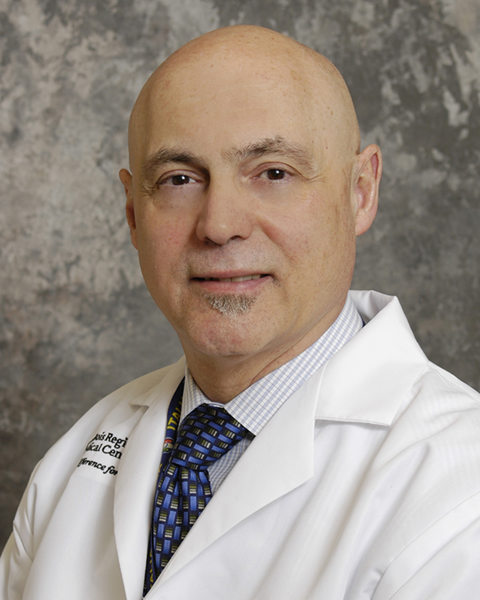
Sleep Medicine
Pulmonology
Critical Care Medicine
Penn Highlands Pulmonology and Sleep Medicine - St. Marys
A Service of Penn Highlands DuBois
Penn Highlands Pulmonology and Sleep Medicine - DuBois
A Service of Penn Highlands DuBois

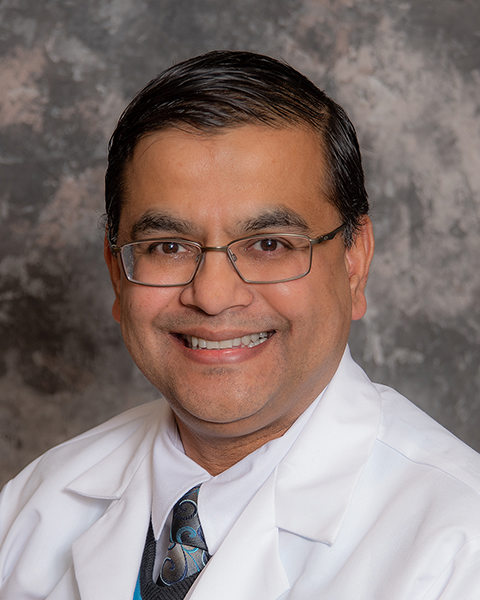
Sleep Medicine
Pulmonology
Penn Highlands Lung Center - St. Marys
A Service of Penn Highlands DuBois
Penn Highlands Lung Center - Philipsburg
A Service of Penn Highlands DuBois
The Lung Center
Penn Highlands Lung Center - Punxsutawney
A Service of Penn Highlands DuBois
Why Choose Penn Highlands for a Sleep Study?
The Sleep Centers at Penn Highlands Healthcare are here to help you get the quality, restorative sleep you need. Our sleep doctors and certified sleep technicians offer a full range of sleep-centered care from diagnosis through treatment and follow-up.
We offer a home sleep study that lets you get a diagnosis right from the comfort of your own bed. If you need to go to a lab for your sleep study, all of our sleep centers are fully accredited by the American Academy of Sleep Medicine.
The Sleep Lab is located on the 2nd floor of the Central Wing.
Accredited by the American Academy of Sleep Medicine
• In-Home Sleep Studies
The Sleep Disorders Center is located on the 2nd Floor of the DuBois Community Medical Center.
Accredited by the American Academy of Sleep Medicine
- In-Home Sleep Studies
- In-Lab Sleep Studies
The Sleep Lab is located on the 1st Floor of the Penn Highlands Elk.
Accredited by the American Academy of Sleep Medicine
- In-Home Sleep Studies
- In-Lab Sleep Studies
The Sleep Lab is located on the 3rd floor of the Hospital in the Specialty Care Clinic.
Accredited by the American Academy of Sleep Medicine
• In-Home Sleep Studies
• In-Lab Sleep Studies
The Sleep Lab is located on the 3rd floor of the Charles L. & Rose Sweeney Melenyzer Pavilion.
Accredited by the American Academy of Sleep Medicine
• In-Home Sleep Studies
• In-Lab Sleep Studies

